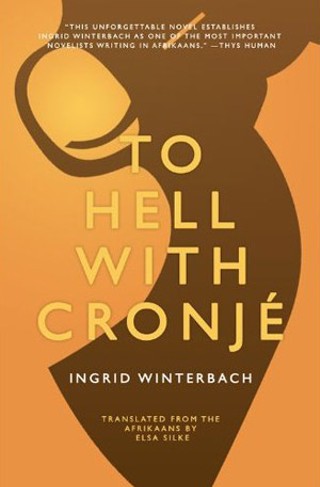Book Review: New in Print
Ingrid Winterbach
Reviewed by Richard Whittaker, Fri., Sept. 10, 2010

To Hell With Cronjé
by Ingrid Winterbach, translated by Elsa SilkeOpen Letter, 239 pp., $15.95 (paper)
It's been a long time since Afrikaans has been a major literary language. Not since Breyten Breytenbach and his fellow writers of the Beweging van Sestig group documented the crimes of apartheid has the native tongue of South Africa's Dutch settlers garnered much attention. However, Winterbach's novel, vibrating with the hideous birth pangs of that nation, has won serious critical adulation. Originally published in 2002 as Niggie (not a racial slur but the Afrikaans' word for cousin), the newer title reflects its historical position. Two years after General Piet Cronjé's game-changing surrender at the Battle of Paardeberg in 1900, the Second Anglo-Boer War is winding to its bloody and inconclusive end. A small band of Boer volunteers has left what can loosely be branded the front to take a shell-shocked comrade back to his family. Instead, they find themselves deployed in an arid stretch of the veldt with a ragtag band of veterans. Winterbach doesn't describe the traumas that broke most of these men. Instead, she portrays them as shattered shadows, their dogmas and fanaticisms the sole fuel for their continued aggression. This is a place and a time where logic has broken down, where even men of science readily believe that bush sorcerers can commune with the dead – and there are more than enough dead around. Leaving in just enough dialect to require a glossary, the text evokes a time and a place that is alien to most, as the Boers denounce the Khakis (their term for the British soldiers) as inhuman while mocking the indigenous "kaffirs" as subhuman. Few would ever defend terse, guttural Afrikaans as a poetic language, but Elsa Silke's remarkable translation catches its lyricism. What makes this novel and its fresh English-language publication so timely is that its themes have become uncomfortably familiar. A camp-side discussion of geology and biology by two of the travelers sparks a ferocious defense of the anti-scientific and inherently racist beliefs of some of their brothers-in-arms. It is those conservative values that would drive South Africa into brutal segregation and its long cultural isolation, and it serves here as a timely political warning.










